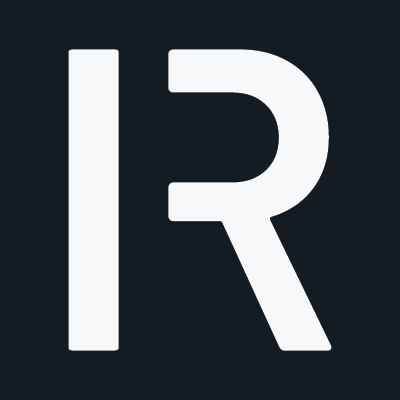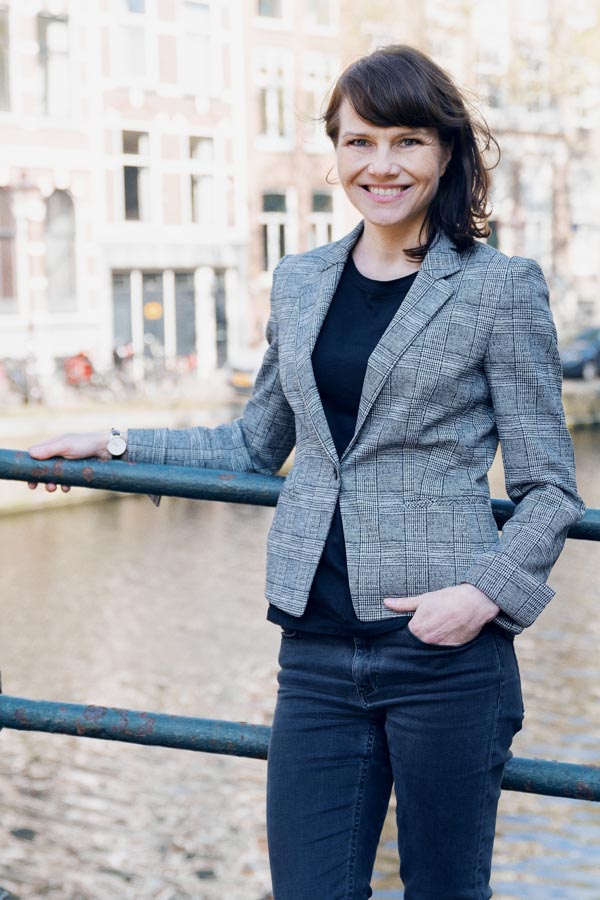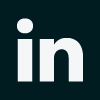We spoke with Theodoros Papadopoulos, Chief Digital Officer at Bank of Valletta, to hear how he uses human-centricity to evolve culture and accelerate the business transformation at the Bank of Valletta.
Financial services industry today in Southern Europe
Theo, it’s great to have you here. Let’s start the interview by talking about the Southern European banking market. DBS’s CEO said as early as 2013 that banks need to get banking out of banks to remain relevant and future-proof their business. Temenos claimed in 2022 that traditional branches are a thing of the past. Knowing that the Southern European banking market is not leading the industry developments, how do you see these statements?
Theo: “It is hard to disagree with the first statement as people need banking services, they do not need banks. Whether the Southern European banks have managed to get a sufficient amount of banking out of their business as envisioned by DBS, I’d say that many banks, including BOV, have made significant progress on many fronts to modernise their business.
It is true that the Southern European banks appear to be slow followers compared to the Northern European Banks. But Malta is not Sweden or the UK.
At Bank of Valletta, we still see the branch network and more traditional service interfaces like ATMs as strategic assets.”
The hallmarks of a modern business and leadership
What does a modern business represent to you? What are its key hallmarks?
Theo: “For me, the sign of modernity is a company running its business with a human-centric and digital business model and investing in the organisational culture. The most modern industry I have worked for is the travel industry, and the most modern company is Booking.com. Even today, I cherish their customer-obsessed and human-centric culture. It is quite amazing what this type of culture enabled for the business and its employees in terms of competitiveness and employee satisfaction.”
Knowing your background in diverse industries and your human leadership philosophy, I’d label you as a new kind of leader in general, and a slightly radical leader in the financial services industry. I hope you do not mind the labels. What are the core elements of your leadership toolkit?
Theo: “It is true that a new generation of leaders is emerging. Thank you for seeing me being part of that group! I have one main leadership theme and three sub-themes. The main theme is human- centricity, and the sub-themes are culture, employee experience, and customer experience. I believe empathy, which is a pre-condition to human-centricity, is a must-have leadership skill. Funnily enough, the trait that was long ago seen in business as a weakness is now becoming a core leadership skill. I see a lot of companies heavily investing in senior management development in this area.”
Empathy, which is a pre-condition to human-centricity, is a must-have leadership skill.
People transformation is the key to successful business transformation
Let’s first dig deeper into the topic of culture. What does it mean to you? How do you use it?
Theo: “Generally speaking, banks are very good at strategizing, creating optimistic plans and compelling presentations on how to transform their business. Yet, the strategies often come with one major flaw. They have been created in a vacuum, as if culture, which either accelerates or hinders the strategy execution, did not exist or would not matter. Of course, the standard narrative goes that after the strategy launch, you start working on the culture to align it with the strategy. The statistics on business strategy execution tell us that this approach does not work very well. Business strategies fail more often than they succeed.
For me, culture is a starting point to transformation. Business consists of people without whom companies do not change and from whom I expect top performance. I believe that in a constantly evolving business environment culture should come before strategy. Or, to be more exact, it is one of the leadership team’s top priorities that is managed 24/7.”
In a constantly evolving business environment culture should come before strategy.
Culture is one of the leadership team’s top priorities to be managed 24/7
You are not alone in your leadership philosophy. The CEO of Lloyds Banking Group’s CEO Charlie Nunn has said: “How we think about our culture and ways of working is fundamental. It’s probably more important than some of the strategic choices we make.” The CEO of PepsiCo, Ramon Laguarta, has gone even further, suggesting that the most important asset companies have is not its people but its culture, as it is the culture that empowers employees to bring their best effort and best ideas with the support of the leadership team. Could you share what you have done on the cultural front?
Theo: “The first step is to define the target culture. For my team to be able to do their job, to transform the bank, we need a culture of inclusion and innovation. We cannot afford to have employees who mechanically execute orders from the top. The world is too complex and the market too competitive for it. We need employees who are connected to the change around us and feel valued for expressing ideas that will help the bank to be competitive. And we need a system that can introduce the new ways effectively into our operations. The former is easy, and the latter much harder due to the regulated nature of banking. Regulation tends to stiffen innovation, and this fact applies not only to banks but also to fintechs. Building the right kind of innovation mindset and a system encouraging innovation is probably the hardest cultural trait to embed into daily operations.”
We cannot afford to have employees who mechanically execute orders from the top. The world is too complex and the market too competitive for it.
“In building the target culture, I believe in coaching. The standard culture change narrative goes that it is the cultural identity and the system that hinder people and teams from doing the right thing. But this is only one side of the coin. The other side is our own beliefs, which can be very limiting. Coaching addresses the rarely talked about aspect of culture change, our very own limiting beliefs. Believing in coaching means that you believe that culture change requires individual interventions.
There are countless studies that prove the link between coaching and productivity. One found that the right kind of coaching can increase human productivity by up to 70%. A few years ago, I experienced the benefits of coaching myself. The impact it had on my self-image as a leader and my professional performance was so dramatic that I decided to become a professional coach myself. I studied it to understand how to leverage coaching for the benefit of my team. As a result, coaching is now an integral element of our every day. We have team coaching sessions to address specific problems teams are facing and individual coaching to help our employees understand themselves better — their personalities and skillsets — to improve and perform better and further their careers.”
Failure is a sign of our people having the courage to challenge the status quo and try out new things.
“We also have introduced a ritual where we celebrate both failures and successes, which I believe is pivotal in transforming businesses. For us, failure is a sign of our people having the courage to challenge the status quo and try out new things.”
Celebrating failures is not easy within banks. The banks can never be like unregulated start- ups, which run their business with the mantra “outfail competition”. In banking, the price tag of a failure can be something completely different than for start-ups and companies in unregulated industries. How have you managed to introduce this practice?
Theo: “A good point. There are two things to take into consideration. First, we are very clear about where we can fail. Today, relevant banking requires banks to adopt non-banking practices to run the business effectively and offer a smooth customer experience. Trials and failures happen in this space.
Secondly, coaching and celebrating failures go hand in hand, as failures can hit you hard even if the company has a culture that stomachs failure. Failing means that you tried to introduce something new, and doing so always takes emotional engagement and stamina. Coaching helps people to develop the resilience to push new things forward and recover from disappointment. Of course, the faster you fail, the less emotional engagement and disappointment you feel.”
A path to everyone owning customer experience
I read that Bank of Valletta very recently launched a new internal initiative to empower employees and improve customer experience. Tell me about it.
Theo: “We just launched Gen BOV. It is a program where we share our customers’ interactions and experiences from the frontline worker’s point of view. We want everyone at BOV to experience the issues first-hand to make them a part of the solution. We do not want our non-customer-serving people to read faceless reports on CX problems.”
We do not want our non-customer-serving people to read faceless reports on CX problems.
“Recently, fifteen percent of our 2,200-strong workforce from all levels and functions participated in our CX week. It had such a strong impact on all of us. Yet, these types of initiatives are most important to our front-line teams and relationship managers. As you know, they often feel forgotten and left alone no matter the industry. Our message is clear: ‘Customer experience is a top priority for Bank of Valletta. We value the front-liners who deliver it every day. Together, we look for solutions that make their and our customers’ everyday better with us.’
We also have another program, the Voice of Customer. It is a 24/7 customer dialogue platform to build a competitive advantage with an exceptional customer experience. Also, in this program, transparency is the primary design driver. We monitor certain KPIs every month and share these metrics with everyone. Everyone at the Bank of Valletta has a 360-degree overview of our performance on the key CX metrics.
Recently, we collected and analysed 24,000 customer responses. As we speak, our fantastic CX team is working on how feedback will be incorporated into our operations and customer journeys. We use the Voice of Customer as a tool to allow informed decision-making and ensure the customers’ needs are always incorporated into our design processes.”
People leadership is the hardest leadership topic
Many think that the new generation of human-centric leaders are softer leaders than their more substance-focused predecessors. What’s your take on that?
Theo: “All leaders push for change by requiring that things be done differently so that a company can deliver different, better outcomes. All leaders know that they must respect the pace of the organisation; to push but not push too hard. All leaders also know that not all employees cope with the change.”
The soft aspect the new generation of leaders portray is that they see employees as they truly are and manage them accordingly.
“I think the only soft aspect the new generation of leaders portray is that they see employees as they truly and manage them accordingly. Employees are humans who need a purpose, who want to belong, who want to understand why they need to change and who need support to transform themselves as employees.
The success of Bank of Valletta’s transformation depends on how our 2,200 employees transform themselves, as transform they must. Our performance depends on how our 2,200 employees perform. I believe the biggest leadership paradigm we are undergoing is how we see our employees and how we lead them as humans. My bet is that culture is fast becoming a hard leadership topic.”

About the author

ADVISOR, STRATEGY AND CULTURE
Tintti Sarola
Tintti Sarola is a strategist, transformation lead, and culture expert who believes the journey defines the outcome. With a background as a national team-level dressage rider and a track record of podium finishes up to the European Championship level, she brings the same intensity, focus, and commitment to business as she once brought to elite sport.
Her career spans law, tech, strategy, and transformation – from her early days in contract law and IPR to leading digital transformation, business development, and culture-powered change initiatives. Tintti has helped build successful start-ups, scale family-run businesses, and reshape how established organisations think, behave, and operate.
She specialises in helping leadership teams rewire how they work – aligning strategy with behaviour, shifting entrenched patterns, and building the human systems that make change stick. Sharp on strategy and fluent in human dynamics, Tintti is known for cutting through noise, connecting the dots, and helping companies move – fast and together.

